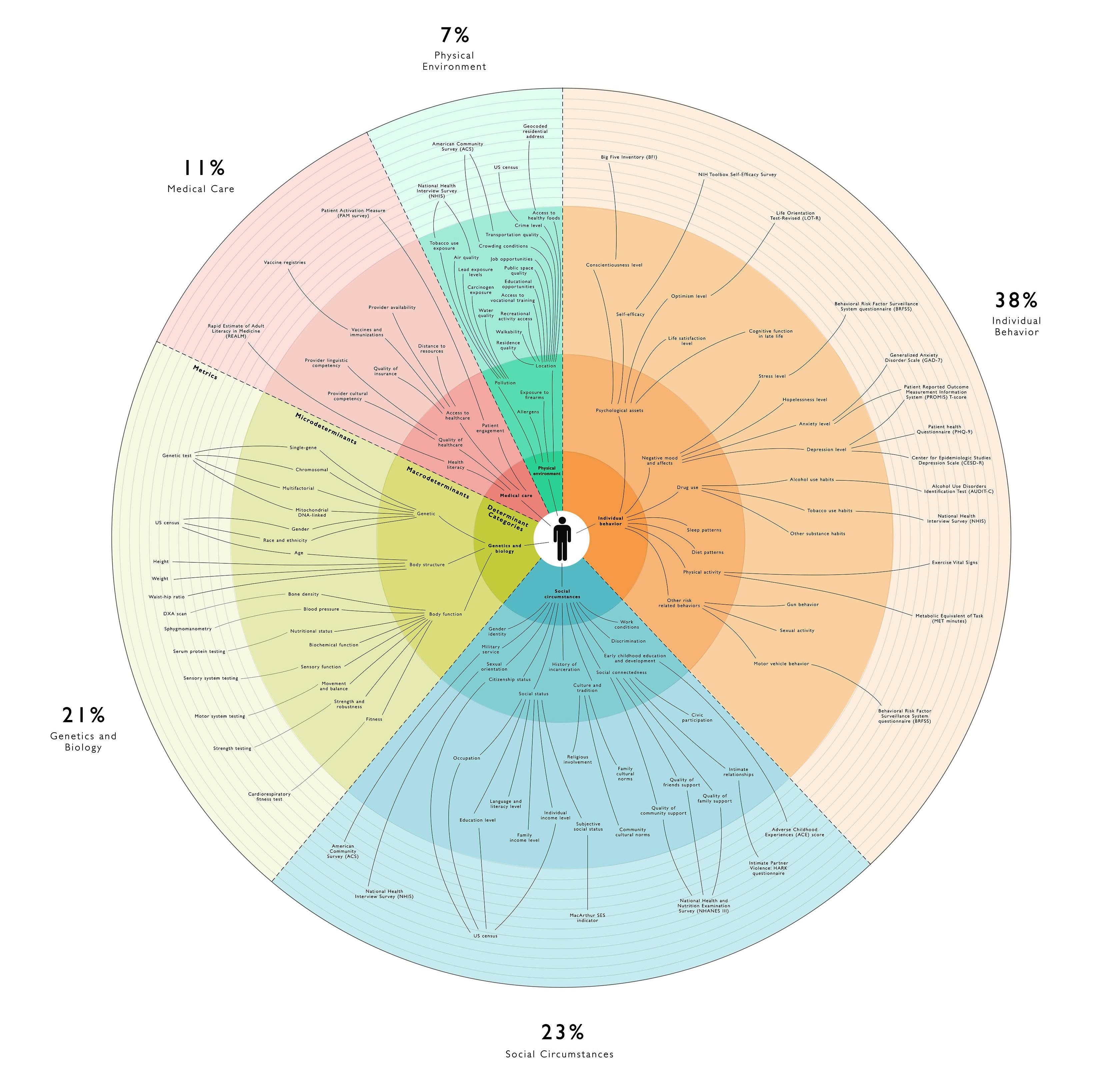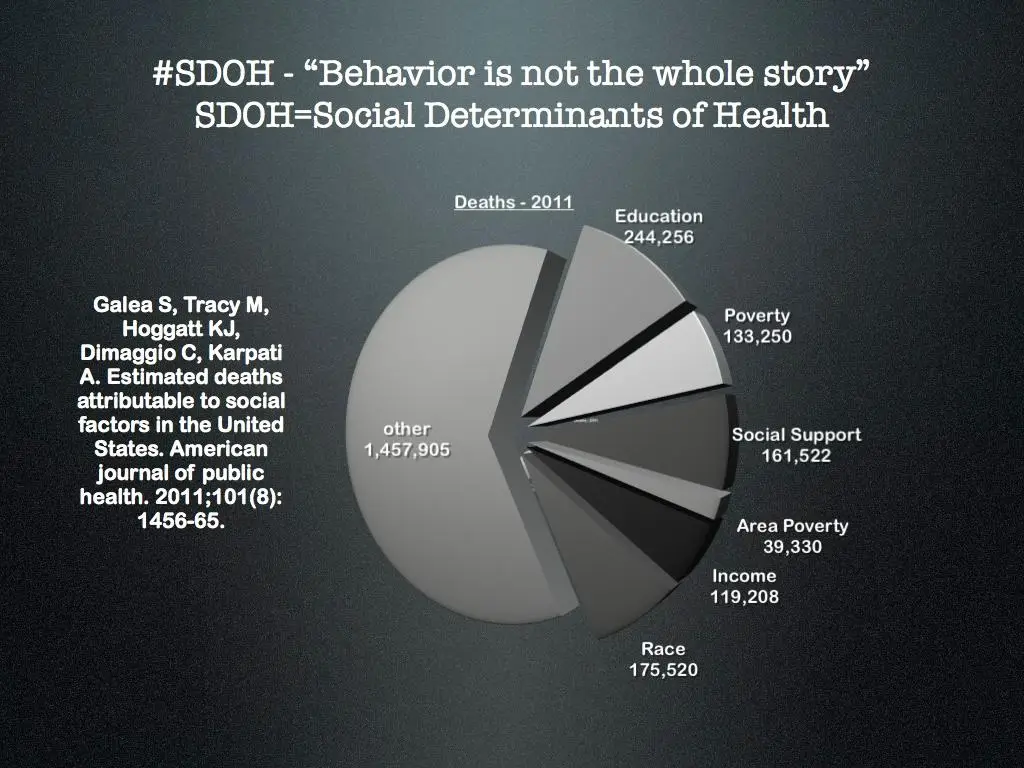In a world where health outcomes are often seen through the narrow lens of medical treatment, the impacts of social determinants on our well-being are frequently overlooked. From our living conditions to our access to resources, these external factors play a crucial role in shaping our overall health. Let’s delve into the intricate web of social determinants of health and explore how they influence our everyday lives.
Understanding the Impact of Socioeconomic Status on Health Outcomes

One of the most critical factors influencing health outcomes is socioeconomic status. Socioeconomic status refers to an individual’s social standing or class based on income, education, and occupation. It plays a significant role in determining access to healthcare, quality of healthcare, and overall health status.
**Key points to consider about the impact of socioeconomic status on health outcomes:**
- Individuals with lower socioeconomic status are more likely to experience higher rates of chronic illnesses, such as heart disease, diabetes, and obesity.
- Access to healthcare services, including preventive care, can be limited for those with lower incomes and education levels.
- Poor living conditions, such as overcrowded housing and exposure to environmental toxins, can negatively impact health outcomes for individuals of lower socioeconomic status.
**Understanding and addressing social determinants of health is crucial in promoting health equity and improving overall well-being. By recognizing the impact of socioeconomic status on health outcomes, policymakers, healthcare providers, and communities can work together to create a more just and equitable healthcare system for all individuals.**
The Role of Education in Health Disparities

Education plays a crucial role in shaping health outcomes and addressing disparities in society. By providing individuals with knowledge, skills, and resources, education empowers people to make informed decisions about their health and well-being. Access to quality education can help individuals navigate healthcare systems, understand preventive measures, and adopt healthier lifestyles.
Furthermore, education can also influence social determinants of health, such as income level, employment opportunities, and access to healthcare services. Higher levels of education are often associated with better job prospects, higher income, and improved living conditions, all of which contribute to overall health and well-being.
Through education, individuals can gain a better understanding of the factors that impact their health, including cultural beliefs, social norms, and environmental influences. Education can also promote critical thinking skills, which are essential for evaluating health information, making informed decisions, and advocating for health equity.
Community Factors Influencing Access to Healthcare Services

Community factors play a significant role in determining access to healthcare services for individuals. These social determinants of health can greatly impact an individual’s ability to seek and receive quality healthcare. Factors such as income level, education, and social support networks can either facilitate or hinder access to healthcare services.
Income Level: Low-income individuals may struggle to afford healthcare services, including insurance premiums, co-pays, and medications. This can lead to delayed or forgone medical care, resulting in worsened health outcomes.
Education: Limited education can impact an individual’s health literacy, making it difficult for them to navigate the healthcare system, understand medical information, and advocate for their own healthcare needs.
Social Support Networks: Strong social support systems can help individuals access healthcare services by providing transportation to appointments, emotional support, and assistance with healthcare decision-making.
| Community Factor | Impact on Healthcare Access |
|---|---|
| Transportation | Can hinder access to healthcare services for individuals without reliable transportation. |
| Language barriers | Language barriers can make it difficult for individuals to communicate with healthcare providers and access necessary care. |
Policy Interventions to Address Social Determinants of Health

Policy interventions play a crucial role in addressing the social determinants of health, which are the conditions in which people are born, grow, live, work, and age that impact their health outcomes. By implementing targeted policies, governments can help create a more equitable society where everyone has the opportunity to lead a healthy life.
One effective policy intervention is the implementation of universal healthcare systems, ensuring that everyone has access to essential healthcare services regardless of their socio-economic status. This can help reduce health inequities and improve overall population health.
Another important policy intervention is investing in education and job training programs to provide individuals with the skills and resources they need to secure stable employment. This can lead to better economic opportunities and improved health outcomes for individuals and communities.
Furthermore, policies that address housing insecurity and promote affordable housing can help create stable and supportive environments for individuals and families, ultimately contributing to better health outcomes. By addressing these social determinants of health through targeted policy interventions, we can work towards building a healthier and more equitable society for all.
Q&A
Q: What are social determinants of health?
A: Social determinants of health are the conditions in which people are born, grow, live, work, and age that impact their health and well-being.
Q: How do social determinants of health influence our overall health?
A: Social determinants of health can affect access to healthcare, education, employment opportunities, safe housing, and clean air and water, all of which have a significant impact on a person’s health outcomes.
Q: Can you give examples of social determinants of health?
A: Examples of social determinants of health include socio-economic status, education level, access to healthy food, social support networks, and exposure to discrimination or violence.
Q: How can addressing social determinants of health improve public health outcomes?
A: By addressing social determinants of health, we can reduce health inequities and disparities, improve overall health outcomes, and decrease healthcare costs in the long run.
Q: What role do policymakers play in addressing social determinants of health?
A: Policymakers play a crucial role in addressing social determinants of health by implementing policies that promote health equity, improve access to resources, and create healthier environments for all individuals.
Future Outlook
In conclusion, understanding the social determinants of health is crucial in creating a more equitable and healthier society for all. By addressing factors such as income, education, and access to healthcare, we can work towards better health outcomes for individuals and communities. It is only through recognizing and addressing these systemic issues that we can truly improve the well-being of our society as a whole. Let us continue to advocate for change and strive towards a future where everyone has the opportunity to live a long, happy, and healthy life.



